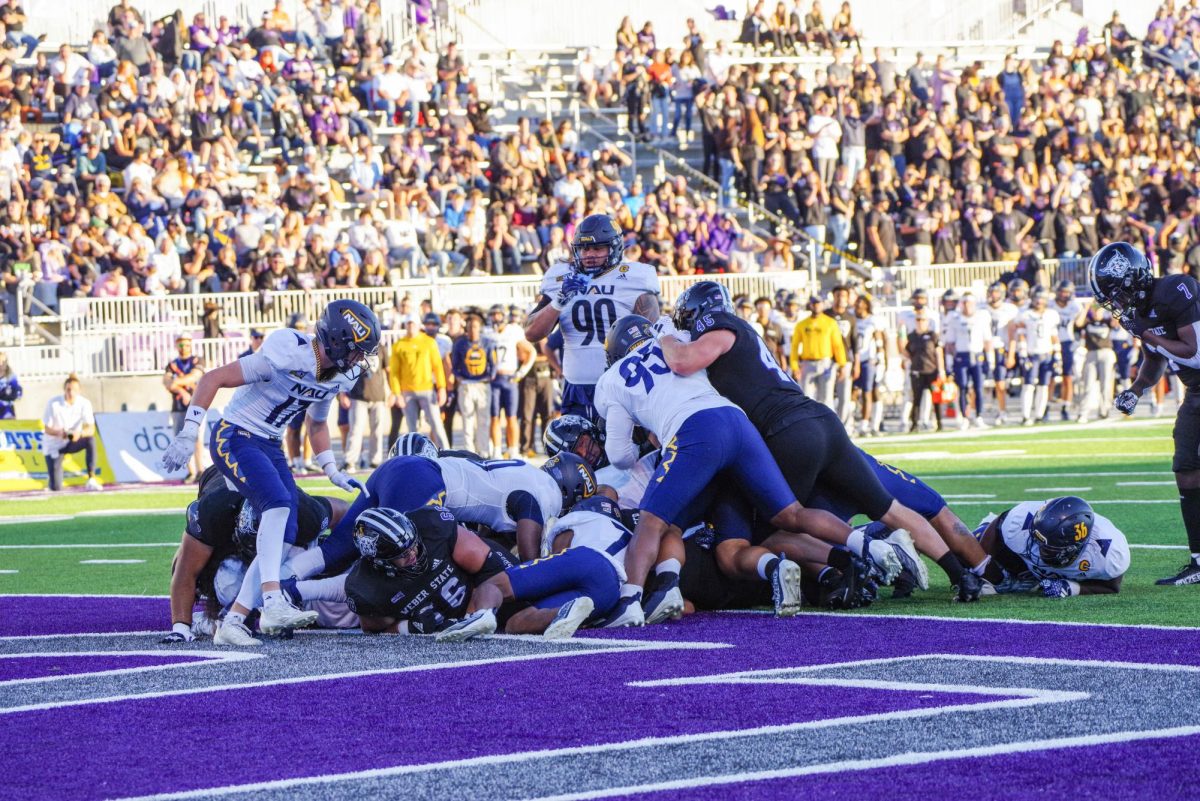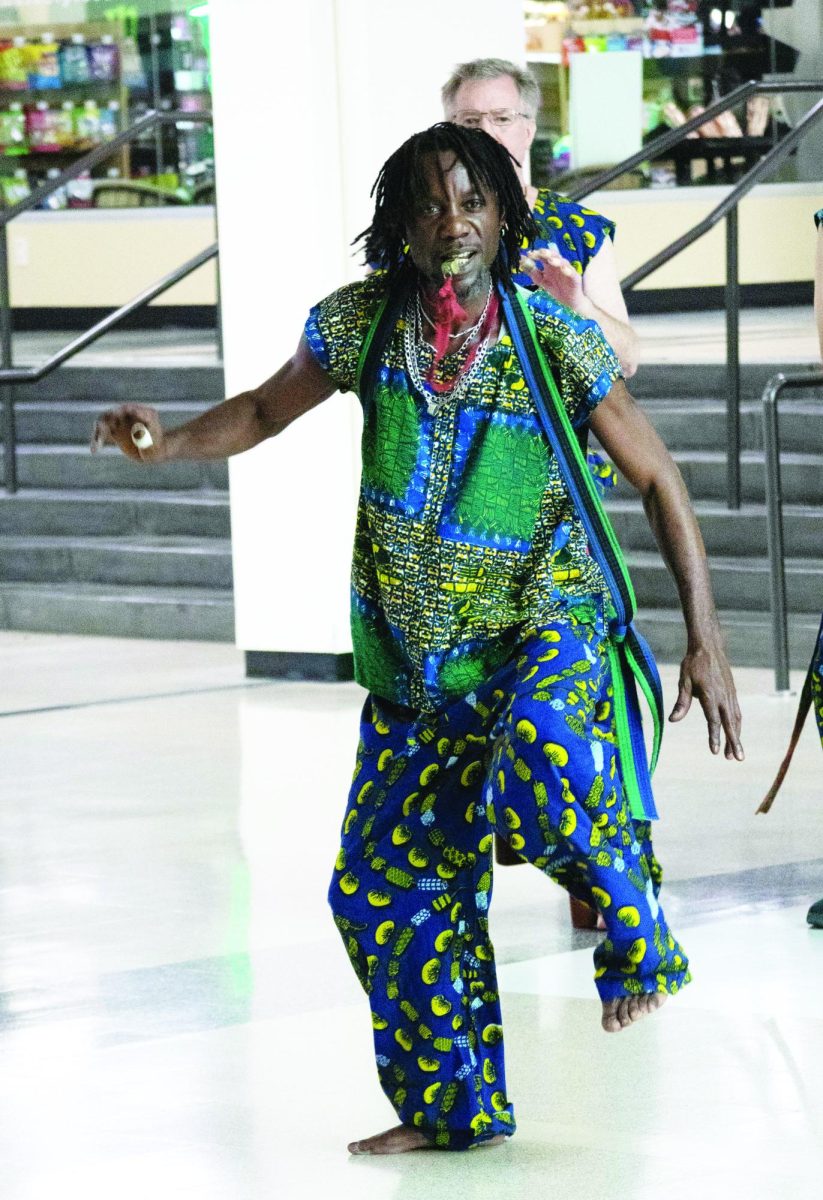
The 15th Annual Diversity Conference at Weber State University focused on immigration in the United States and encouraged attendees to become better acquainted with the facts and what can be done. The conference featured keynote speaker and immigration policy expert Edward Schumacher-Matos, director of the Harvard University Migration and Integration Research Program and ombudsman for NPR.
“The great migration wave that we have seen in this country for the last 40 years, a wave that is equal to the one that we had back in the late 20th century that’s associated with Ellis Island (and) almost identical in size, is coming to an end,” Schumacher-Matos said.
He said the net number of undocumented immigrants entering the country is now around zero. The number of undocumented immigrants leaving the country is more or less equal to the number coming in.
The conference was held over two days and included two presentations from Schumacher-Matos. It also featured breakout sessions addressing specific immigration topics and a closing lunch panel.
Breakout session topics included “Refugees and Immigration,” “Those Left Behind” and “The Impact of Immigration on Education.” All the breakout sessions focused on enlightening students about the facts of immigration and discussing how change might be brought about.
“Utah’s been a laboratory of what’s been going on with immigration and immigration reform over the past few years,” Schumacher-Matos said. “We’re here to look at this thing from an academic, independent point of view, and to look at what the facts are, what the research shows. Let’s take it beyond the debate. Let’s take it beyond our beliefs. And let’s look at what we really know and what is it that we really don’t know.”
Camila Ibanezsldt of the Salt Lake City Dream Team said she believes that change in policy can come when communities stand together and understand that all undocumented workers are people first and foremost.
“We are human,” she said. “We don’t deserve to be treated like this.”
The Dream Team specializes in working with DREAMers — immigrant children who have held residence in the United States for at least five years and are hoping to gain citizenship. The Dream Team held a breakout session explaining the processes that many undocumented workers go through when families are separated due to deportation.
The team specifically included the story of Ana Canenguez, whose family is threatened with separation as three of the children face deportation.
“Our issue is your issue,” said Ibanezsldt during the presentation. “We are all suffering.”
Chris Newman was one of three who spoke during Friday’s closing panel.
“I have devoted my life’s work to immigrant rights in part because I have a desire to cling to a belief that was forged when I read fifth-grade history books about the United States being a land of opportunity,” he said. “This generation of immigrants, in fighting for their own emancipation, are fighting for American ideals.”
The conference drew a large number of students from across campus. Construction management major Mark Hurd said he was interested in becoming more enlightened about immigration not just for himself, but for his children.
“My son goes to a school where some of the biggest (student) majority is Hispanic, and the teachers aren’t really prepared to teach in a class . . . when 60 percent of them don’t even speak the language,” Hurd said. “That’s why I really wanted to concentrate on (learning about immigration and education), because to me as a parent, I (wonder) . . . one, are we helping my son? And two, are we failing both of them?”
Hurd said he enjoyed the conference overall.
“The best part for me was just sitting back and taking a non-intrusive role. I didn’t come in with any expectations other than an open mind . . . to listen to the true problems for what’s out there and not what someone is making me think.”
WSU Student Association diversity vice president Lola Moli spoke in a panel aimed at dispelling myths and assumptions surrounding immigration and people of color, particularly about the assumption of criminal activity.
“I just get sick of the generalizations that I hear for all immigrants — and just other people, period. I’m Polynesian . . . and you’ll see Polynesians on the news often for crime that occurs. We get generalized that way.”
Moli said many undocumented workers and their families have similar assumptions made about them that may not be the case.
“Most immigrants move here with their families,” she said. “They come here for a better life or better job opportunities, and the last time I checked, that’s not linked to crime.”

Discussion co-facilitator Nick Berg agreed with Moli, citing the 2000 study from the Chamber of Commerce that reported the incarceration rate for young immigrant men was 0.7 percent, five times lower than the 3.5 percent of native-born men.
“Universities are important places to have this conversation,” said WSU President Charles Wight. “Universities are places of leadership and connection. It’s a place where people with differences in background, point of view, culture, race can sit down to have a respectful conversation and learn from each other.”



















